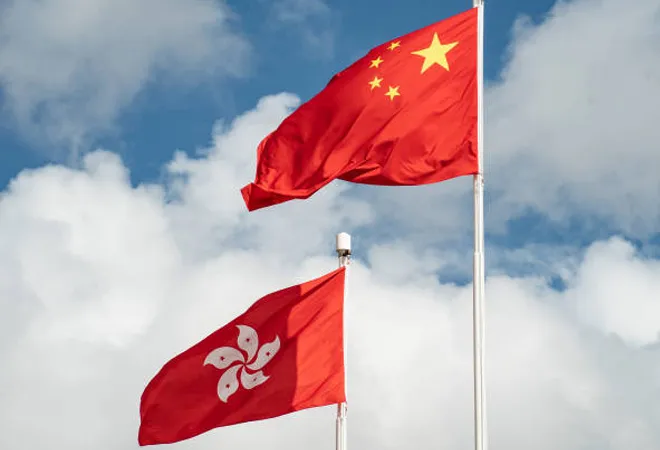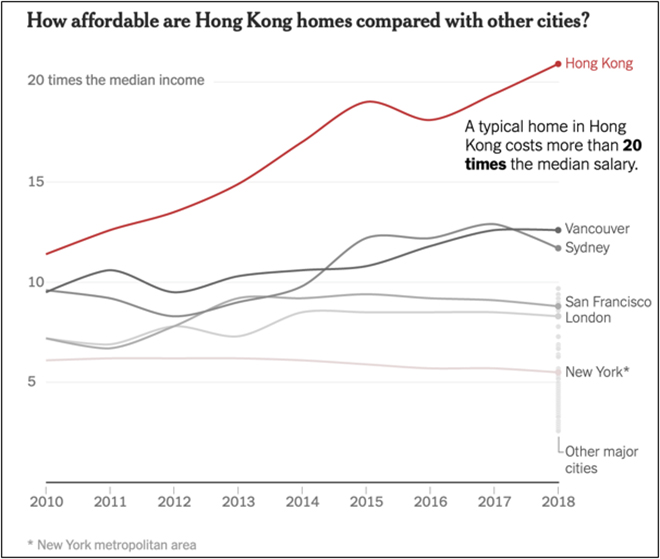
March is an important time in the political calendar of the Chinese Communist Party (CCP) when it tries to showcase that China is a democracy in action. The sitting of its legislative bodies—the Chinese People’s Political Consultative Conference and the National People’s Congress (NPC)—serve as an important pointer to the CCP’s priorities. During this year’s ‘Two Sessions’, the CCP’s ruling elite met amidst the din of conflict in Europe.
Russian President Vladimir Putin has justified his use of hard power against Ukraine, a fellow Slavic nation, to deal with threats created by the West in territories that belonged to Russia historically. Putin is signalling that he is coming to grips with the problems left in the wake of the erstwhile Soviet Union’s demise. The collapse of fraternal regimes in Eurasia was a wake-up call for the CCP, and it probed into the reasons behind the unravelling to avoid repeating the same mistakes.
The CCP dismantled its command economy and invited foreign investment due to which the proportion of people living in poverty dropped after they migrated to cities, which became the centres for jobs in the industry sector.
First, the centrally-planned economy was diagnosed to be the Soviet Union’s Achilles heel, therefore China instituted
economic liberalisation. The CCP dismantled its command economy and invited foreign investment due to which the proportion of people living in poverty dropped after they migrated to cities, which became the centres for jobs in the industry sector. The CCP was clever in instituting political reform. While the West sees multi-party elections and civil liberties as the gold standard for a democracy, the CCP reckoned that it could harness the
gains of democratisation by reforming its administrative mechanism, especially by bringing in accountability and term limits for cadres without ceding single-party control.
Second, in its heyday the Soviet Union, the largest country, constituting nearly one-seventh of the Earth's land surface, and its 15 republics teeming with different ethnic groups and cultures. Internally in the Soviet Union, trouble began after satellite states began to drift away from Kremlin’s orbit. Nationalistic sentiments began to take root in distant Soviet Republics. This is similar to the current day situation in the People’s Republic, where 56 ethnic groups reside, and is the reason why China has expended its efforts to keep tabs on its
periphery, especially Hong Kong. Thus, a proficient bureaucracy, a socio-economic agenda to widen prosperity has been the CCP’s mantra to hold on to power in the wake of the 1989 Tiananmen Square incident.
Beijing imposed the National Security Law, which proscribes acts that the CCP defines as secession, sabotage, terrorism, and complicity with foreign forces.
In this regard, the issue of Hong Kong has once again featured in the deliberations of the CCP’s elite at the National People’s Congress. Following the city-state’s handover to China by the UK, its population of Chinese ethnicity has resisted Beijing’s writ on many issues. The CCP’s prognosis was that the disturbances were the West’s handiwork, and its approach to use lawfare in dealing with the recalcitrant territory’s population. Lawfare denotes the use of legal remedies and institutions to achieve a certain objective. In 2020, Beijing imposed the National Security Law, which proscribes acts that the CCP defines as secession, sabotage, terrorism, and complicity with foreign forces. Last year during the ‘two sessions’, Beijing made changes to Hong Kong’s
electoral system to make sure that only “patriots” could enter public office. The changes have reduced the number of directly elected legislators to Hong Kong’s Legislative Council and instituted vetting mechanisms for candidates.
Carrot after the stick
The CCP is using its tried-and-tested recipe of promises of spreading prosperity and creating an efficient system of public administration. In his yearly report, National People’s Congress chairperson, Li Zhanshu, who is No. 3 in CCP’s hierarchy and an ally of President Xi Jinping, pledged to “
improve” the mechanism for governing Hong Kong. This means that the CCP is concerned about the necessity to keep tabs over senior Hong Kong officials and nurture political talent, which is in sync with Beijing’s thinking. The CCP feels that while COVID-19 outbreaks were managed better on the mainland, the special administrative region is reeling under a new wave of the contagion. Currently, the city-state’s
fatality rate from the virus is amongst the world’s highest as many elderly residents remain unvaccinated. The sight of an overwhelmed healthcare system and residents resorting to panic buying of essentials are bad optics for the CCP, especially when it has been promoting the narrative that “China handled the virus better than the West”. The Hong Kong administration’s approach to children who test positive for the coronavirus has caused some anxiety. An incident where health workers took an
11-month-old from her parents and quarantined her in a hospital sparked off an uproar. A political scandal in Hong Kong also forced Beijing to
step in, and upbraid the local administration. The birthday celebrations of Witman Hung Wai-man, the city-state’s delegate to the National People's Congress, even as the island was reeling under the fifth wave and in violation of anti-epidemic guidelines has caused unease. Witman and over 170 attendees had to be quarantined, and 13 officials who had attended were suspended. Hong Kong’s Secretary for Home Affairs, Caspar Tsui, quit in the wake of the scandal. These incidents have cast a doubt on the credibility of local governance.
An incident where health workers took an 11-month-old from her parents and quarantined her in a hospital sparked off an uproar.
Economic disparity was cited as one of the reasons for the protests in Hong Kong. The Economist Intelligence Unit’s
annual report in 2021 on cost of living, which ranks cities, places Hong Kong at the fifth position, the special administrative region was at No. 1 slot in the publication’s
2020 study. Hong Kong’s rise as a financial hub and the consequent influx of expatriates have pushed up prices of basic necessities, which has become a burden for locals. The median price of an apartment is more than 20 times the annual median income of a household (see graphic).
 Source: New York Times
Source: New York Times
A
recent survey of Hong Kong’s Census and Statistics Department puts the number of high-income households with a monthly take-home pay of more than HK$100,000 (US$12,794) at 190,000, the figure of households drawing HK$4,000 (US$512) or less is 220,000.
The CCP knows that these inequities are a cause for worry. In her 2021 policy address, Chief Executive Carrie Lam said the administration had earmarked plots and to planned to construct
330,000 public housing flats over the next 10 years.
The CCP’s panacea for economic inequity is to encourage greater integration with the mainland. The Hong Kong administration has been encouraging young entrepreneurs to establish ventures in the Greater Bay Area, a new economic zone that aims to transform Hong Kong and nine other southern cities on the mainland into an innovation hub. The CCP hopes that the prospect of prosperity will wean the island’s Gen Next from ideas of democracy. China’s Premier
Li Keqiang, No. 2 in the CCP pecking order, underscored this point in his opening speech at the two sessions. This is a departure from Li’s address in 2020 when he spoke about the need to safeguard national security.
Conclusion
To conclude, COVID-19 and conflict promise to drive up inflation. Surging cases of Omicron in Hong Kong have meant that many regions have reinstituted border controls, affecting the economy. Moreover, the CCP may also be smug in the belief that its lawfare strategy may have resolved risks to some extent in Hong Kong, and that it is time to focus on the social-economic aspects. These factors may have prompted a re-appraisal of the CCP’s approach towards Hong Kong.
The views expressed above belong to the author(s). ORF research and analyses now available on Telegram! Click here to access our curated content — blogs, longforms and interviews.



 March is an important time in the political calendar of the Chinese Communist Party (CCP) when it tries to showcase that China is a democracy in action. The sitting of its legislative bodies—the Chinese People’s Political Consultative Conference and the National People’s Congress (NPC)—serve as an important pointer to the CCP’s priorities. During this year’s ‘Two Sessions’, the CCP’s ruling elite met amidst the din of conflict in Europe.
Russian President Vladimir Putin has justified his use of hard power against Ukraine, a fellow Slavic nation, to deal with threats created by the West in territories that belonged to Russia historically. Putin is signalling that he is coming to grips with the problems left in the wake of the erstwhile Soviet Union’s demise. The collapse of fraternal regimes in Eurasia was a wake-up call for the CCP, and it probed into the reasons behind the unravelling to avoid repeating the same mistakes.
March is an important time in the political calendar of the Chinese Communist Party (CCP) when it tries to showcase that China is a democracy in action. The sitting of its legislative bodies—the Chinese People’s Political Consultative Conference and the National People’s Congress (NPC)—serve as an important pointer to the CCP’s priorities. During this year’s ‘Two Sessions’, the CCP’s ruling elite met amidst the din of conflict in Europe.
Russian President Vladimir Putin has justified his use of hard power against Ukraine, a fellow Slavic nation, to deal with threats created by the West in territories that belonged to Russia historically. Putin is signalling that he is coming to grips with the problems left in the wake of the erstwhile Soviet Union’s demise. The collapse of fraternal regimes in Eurasia was a wake-up call for the CCP, and it probed into the reasons behind the unravelling to avoid repeating the same mistakes.

 PREV
PREV


